Study bites: How to think critically
30 Aug 2021
What does it mean to think critically?
A lot of people interpret this as a cue to be negative or to criticise an idea, for the sake of it. This is a common misconception. Instead critical thinking is about thinking analytically to evaluate ideas and come to a nuanced understanding of complex subject matter, rather than unthinkingly adopting a position or relying on pre-existing biases and assumptions to guide your thinking.
Thinking critically requires making a judgment on the reliability of facts and information. It also involves thinking deeply about the implications of a particular argument, piece of evidence, theory or concept and how they are interpreted and applied.
Critical thinking means not taking things at face value, but looking for the cracks, noticing the biases, identifying the standpoint that is emphasised and the points of view that are left out. This kind of close scrutiny helps us to analyse complexity and to write analytically, rather than descriptively.
Critical thinking can help us to generate new insights and to find the nuances, tensions and contradictions in the things we read and the way we understand academia. It means we take an active role in learning, rather than passively taking on and reproducing other people’s ideas. And it means seeing ourselves within a larger conversation between academics within and across disciplines about the nature and validity of knowledge.
So how do we do critical thinking?
Ideally, we will have a good grasp of the larger disciplinary debates and schools of thought that influence the variety of positions on a subject and approaches to knowledge. These are rooted in the history of ideas, which are also a reflection of larger historical socio-political processes and cultural changes.
For example, Social Darwinism was a popular theory in the 1800s that took Charles’ Darwin’s theory of natural selection and applied it to the social world in order to justify the social hierarchy of the time. Social Darwinism took a biological view of society that naturalised and normalised inequality, masking the structural and historical forces that systematically reproduced hierarchies according to the interests of the powerful. The context was European imperialism based on the belief in inherent racial superiority. The identification of Social Darwinist ideas with imperialism and White supremacist agendas eventually led to its rejection as a legitimate form of knowledge. Identifying the ways in which knowledge is used to produce or reproduce oppressive regimes is a key function of critical social theories. So, any discussion around the current or historical social order as natural or desirable will always be subject to close scrutiny. But it is not only the social sciences and humanities that are in need of critical thinking. Indeed, these historical shifts are reflected across all the disciplines.
Since knowledge is power, all claims to knowledge are ultimately sites of the construction or questioning of power. Critical thinking puts such considerations at the centre of its processes.
We can learn to think critically and to use a range of writing techniques to demonstrate critical thinking.
Start by paying attention to the debates and differences in your discipline, these can be found in competing theoretical explanations and approaches to research, or methodologies. Asking questions about the author’s interpretation of concepts can help to uncover biases and assumptions that lead to blind spots in knowledge and delegitimise other ways of knowing. Reflect on these in your writing.
To recap, critical thinking involves analytical and evaluative thinking. This goes above and beyond mere descriptions, which can be useful for setting the scene, or providing the context, but cannot grapple with the underlying tensions and complexities at play.
Would you like to know more about critical thinking and learn some ways to help practice your critical thinking skills? Have any questions for me would you like to reflect on these ideas with your peers?
Join me for a Zoom-shop where we can work through how to think critically and find effective ways to demonstrate critical thinking in your work!

0 Comments
There are currently no comments, be the first to leave one